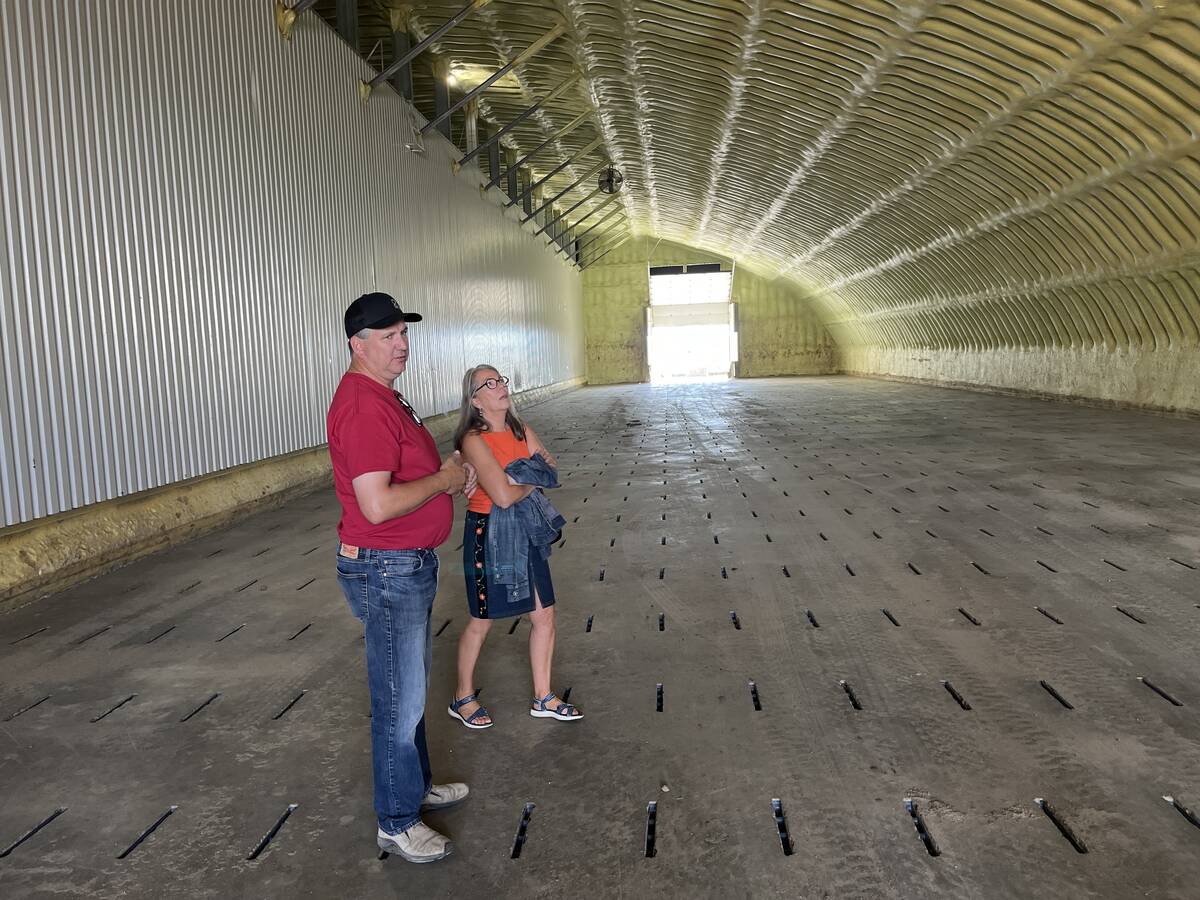A business plan designed to reopen a Saskatchewan packing and processing company was reworked over the holidays after the provincial government offered financial assistance substantially below what the company hoped to receive.
Rick Van Beselaere, the lawyer representing Worldwide Pork of Moose Jaw, wouldn’t say how much the government came up with.
“By no means are we diminishing the support that we are getting,” he said after a court date, during which a judge extended the company’s protection from creditors until Jan. 5.
“It’s just not what we were hoping it to be. It’s going to create some challenges as we try to take what they’re prepared to give us and put it into a format and a plan that’s going to work for the creditors.”
Read Also

Potato farm requires year-round management
The most recent Open Farm Day in Alberta showcased agricultural producers across the province educating the general public about the process that is required is to get food to their table.
Working on deal
Agriculture minister Mark Wartman, who wouldn’t reveal details of the government’s offer, said a counterproposal was “seriously being worked on.
“Ultimately cabinet will have to make the decision on levels and type of support,” he said.
Van Beselaere said the company’s prospects remain good and it will make a substantial profit within three years if it can add a fresh chill component to its business.
The primary shareholders in the restructured company will be producers and employees. The latter group has offered to participate through labour-sponsored funds.
Van Beselaere said the existing shareholders will be diluted to a small position and there will be debt financing.
Queen’s Bench judge Dennis Ball approved $253,675 in debtor-in-possession financing, or DIP, through Agricultural Credit Corp. of Saskatchewan, which will pay utilities and operating expenses until Jan. 13.
Van Beselaere said the company will need more DIP financing to stay operating past a Jan. 27 creditors’ meeting.
He said the plant likely couldn’t open before the end of February. It closed in mid-May 2005 after producers stopped shipping hogs because they weren’t being paid.
“The market price is telling us that there are producers out there who are looking for places to ship their hogs so once we’ve got it built we think that the hogs will start to come back,” Van Beselaere said.
Wartman said the government, which is the largest and only secured creditor, has been clear all along that the industry has to drive the reopening and that there has to be supply and markets in place.
Van Beselaere said the process won’t be easy.
“I’m concerned that we still have a very daunting task ahead of us, which is convincing the creditors, the producers, to get behind this company.”

















